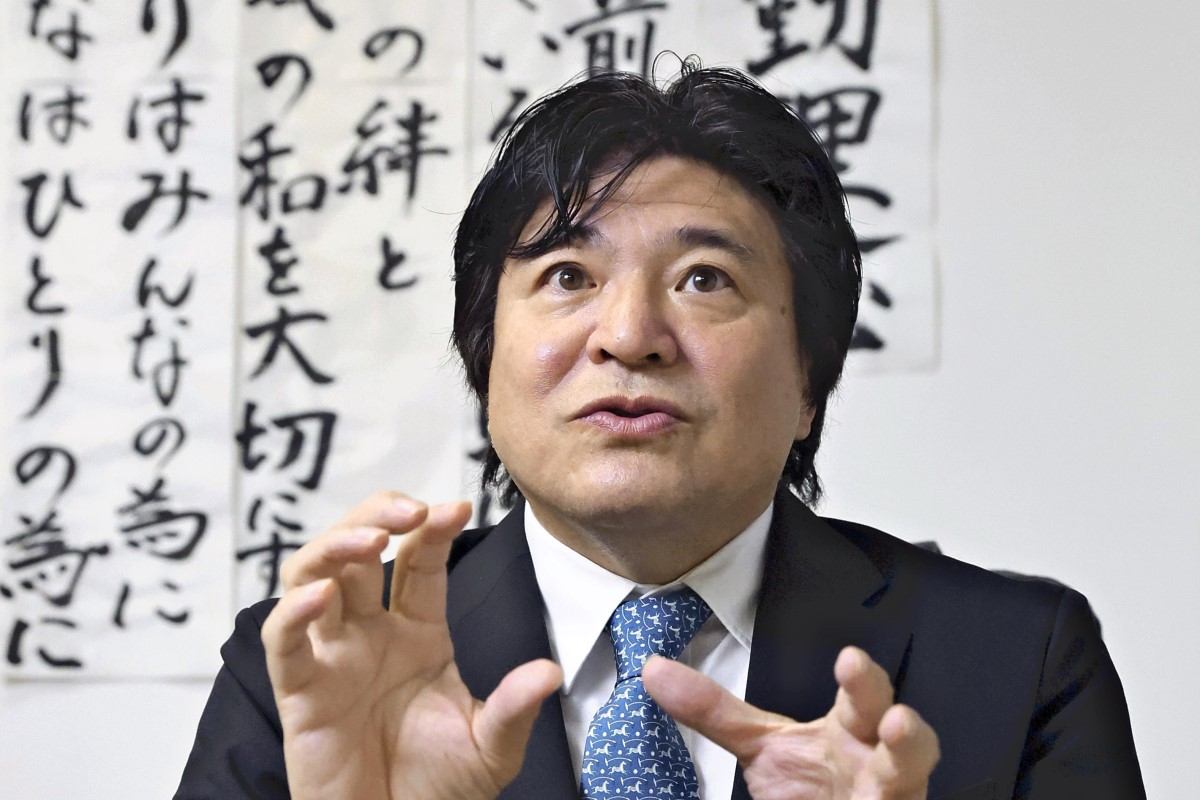
Naoyuki Kawahara
11:30 JST, November 23, 2023
Rocinantes, a Kitakyushu-based nonprofit organization, has been named as recipient of the 30th Yomiuri International Cooperation Prize, for providing medical services to rural areas in Sudan that have no doctors, and supporting pregnant and nursing mothers in Zambia.
Rocinantes has been operating for 17 years, driven by a strong desire to reach out to needy people in Africa where medical care is often inaccessible.
Rocinantes President Naoyuki Kawahara, 58, a doctor from Kitakyushu, founded the organization in 2006 inspired by his experiences while serving as a Foreign Ministry official at the Japanese Embassy in Sudan.
As a medical attache, Kawahara could only treat Japanese nationals living in Sudan. He felt frustrated that he was not allowed to provide medical care to local people suffering from malaria or injuries.
Three years after arriving in Sudan, he resigned from his ministry position and began helping local Sudanese people directly.
The organization’s name is derived from the name of the horse featured in the novel “Don Quixote.”
Two friends from his high school rugby club joined the organization to help with general affairs and accounting. “Alone, we may be powerless, but together we can make the world smile,” Kawahara said.
Kawahara learned by doing, traveling to villages that had no doctors. Initially, he spent more than 80% of the year in eastern Sudan, treating more than 100 patients a day by himself.
He lived among the villagers and was invited to visit other settlements. “I had no financial resources, and I was helped with food and shelter,” he recalled. “Barriers between the givers and the takers were broken down.”
One thing that struck him as he lived among the locals was the lack of clean drinking water. In many areas, people drank water from reservoirs contaminated by livestock excrement, causing diseases to spread.
Kawahara believed that digging wells was a way to provide medical support, so he drilled new wells with the villagers and renovated old ones.
He also established an elementary school for girls who had to walk for hours each day to fetch water and were unable to receive an adequate education. Some of the school’s graduates went on to secondary school to become nurses, he said.
Kawahara emphasized that the goal of such support is to “create a system in which medical care can be carried out by local people alone, allowing knowledge to take root and be passed on to subsequent generations.”
In cooperation with the health ministry in the state of Khartoum, Kawahara formed a system in 2013 in which three teams of medical personnel traveled to 29 villages to provide comprehensive medical services — including vaccinations and maternal and child health check-ups. They dispensed care to about 20,000 people.
Kawahara also had to confront the limitations of traveling clinics. One boy who was suspected of having pneumonia died while waiting for a doctor’s monthly visit — a case he says he will never forget.
Kawahara raised money through crowdfunding and other means, believing that “stable medical care requires a local base.” He used the cash to set up three clinics accessible by donkey from each village.
In 2019, the organization expanded its scope to include Zambia. In the Southern African country, a facility called the “Mother’s Shelter” was established where pregnant women can wait before giving birth.
This past spring, Kawahara and other Japanese staff were forced to evacuate the country due to the escalating conflict in Sudan.
Since returning to Japan, he has given lectures at more than 20 venues in Kyushu and other areas. He has been involved in a wide range of other activities, too, such as linking universities in Kyushu with a research institute in Egypt to develop a local industry to produce new drugs using African medicinal herbs.
Kawahara considers local people, companies and organizations that sympathize with his activities as “Team Rocinantes.”
Winning the award was “thanks to the hard work of each and every person involved in Rocinantes,” he said. “[In the future,] I’d like to think of new ways to support people using IT and digital technology.”
No matter where he is, Kawahara remains focused on future health care in Africa.
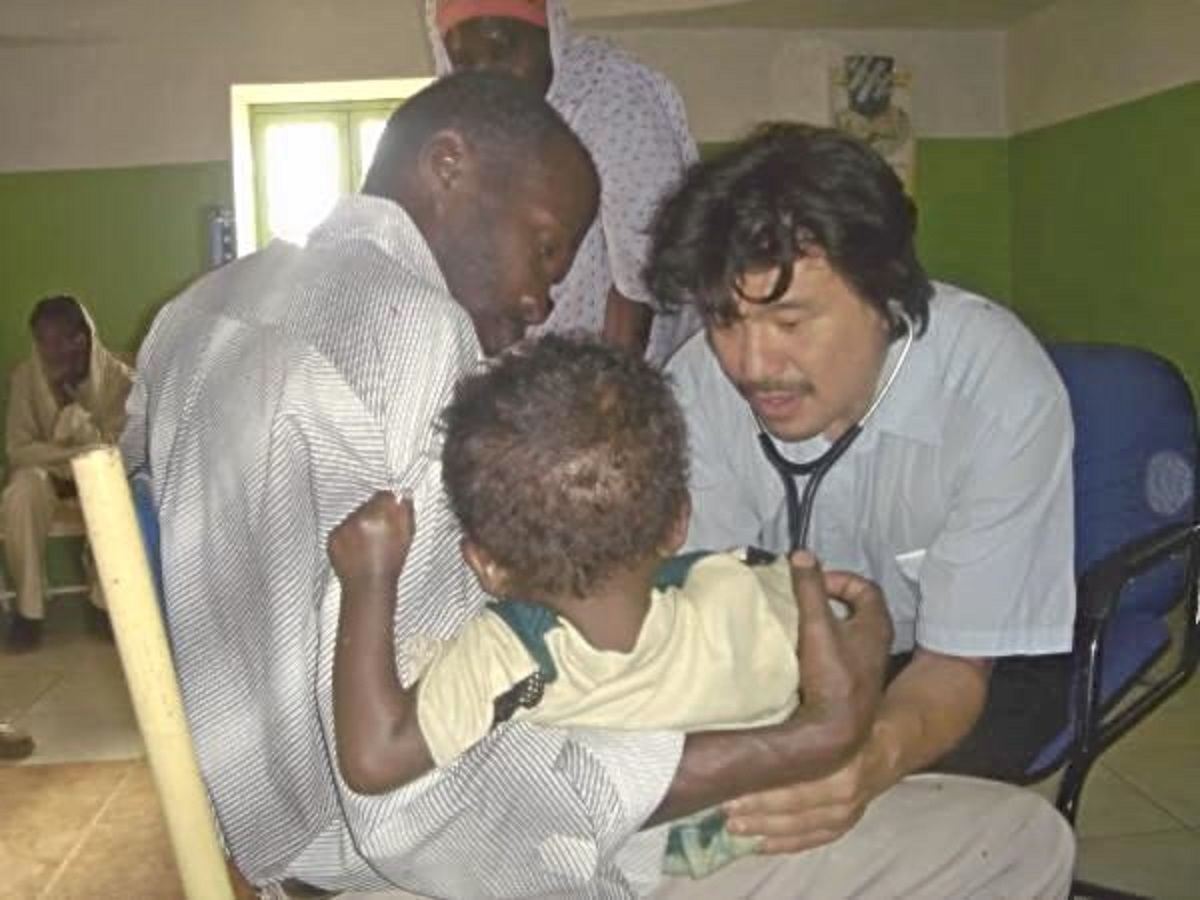
Rocinantes Executive Director Naoyuki Kawahara examines a Sudanese child in Sudan in 2006.
Clashes in Sudan
Located on the coast between the Middle East and sub-Saharan Africa, Sudan is a country with a complicated social structure due to diverse ethnicity, religions and other factors, which have caused ongoing internal war and conflicts.
A north-south civil war broke out upon independence in 1956 and continued until 2005 with intermittent ceasefires. In 2003, a clash over water rights between nomadic Arab people and African agricultural residents in the western Darfur region escalated into a conflict that resulted in the deaths of about 300,000 people and produced around 2 million refugees and evacuees.
A war between the national army and the paramilitary Rapid Support Forces (RSF) that has continued since April is believed to stem from a leadership struggle within the government that was established by a military coup in 2021.
According to a U.S. nongovernmental organization, over 10,000 people have been killed so far.
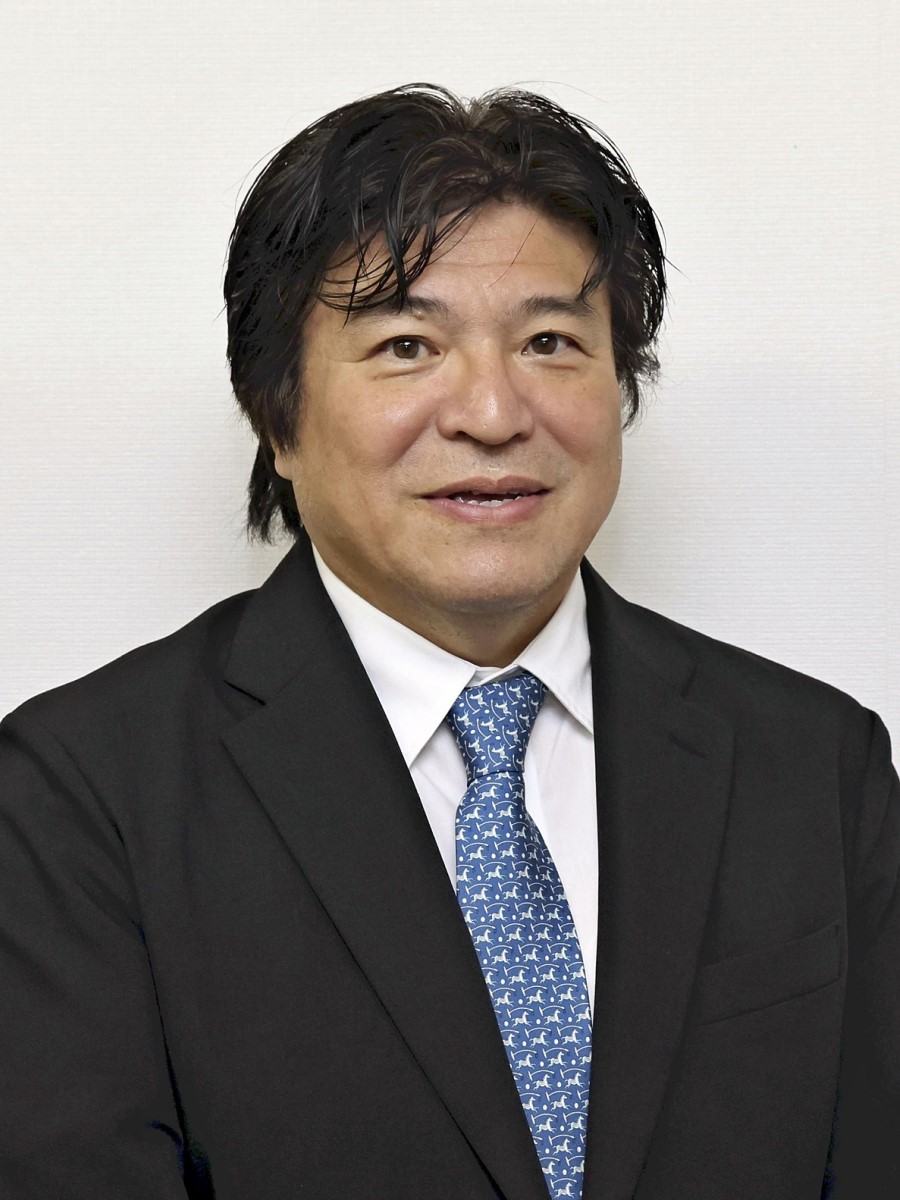
Naoyuki Kawahara
Born in 1965 in Kitakyushu. After graduating from the Graduate School of Medical Sciences at Kyushu University, he joined the Foreign Ministry. He served at the Japanese Embassy in Tanzania as a medical attache and also studied tropical medicine at the University of London. In 2002, he was posted to Sudan, which remains engulfed in a civil war, and he resigned from the ministry in 2005. As a visiting professor at Kyushu University and Nagasaki University, he promotes cooperation with universities in Africa and is involved in research on diagnosis using digital technology.
NGO’s efforts help make childbirth safer in central Zambia
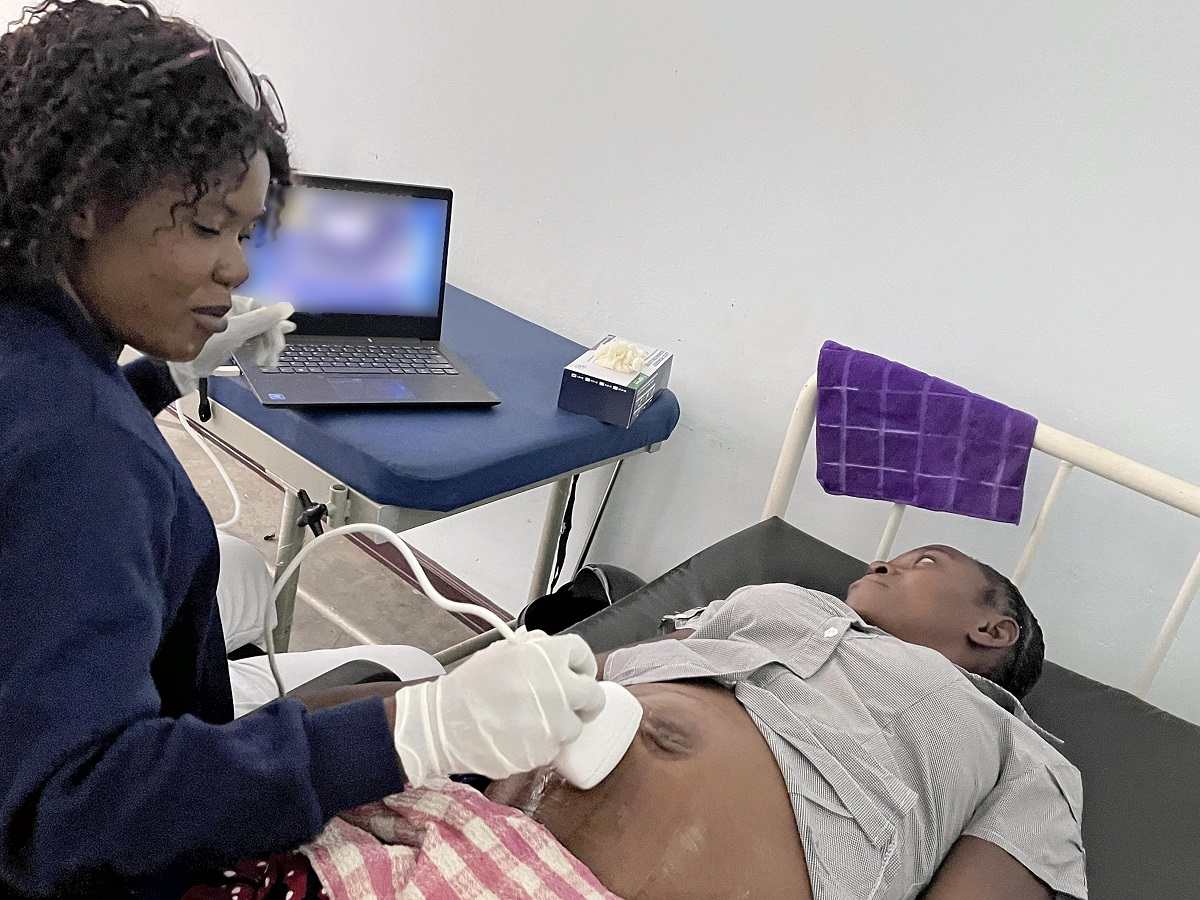
Catherine Mwale receives an ultrasound test of her fetus at the Mother’s Shelter in Mwapula, Zambia.
MWAPULA, Zambia — After driving for about an hour from Zambia’s capital Lusaka, the paved road transitioned into a gravel-heavy, red-soil path. Vehicles became increasingly rare and people toting heavy luggage walked along the long, straight road.
Another hour later, we reached the Mwapula region in central Zambia’s Chisamba district, where the Japanese nongovernmental organization Rocinantes had established the “Mother’s Shelter” in 2021.
At the tree-surrounded facility, some 40 to 50 women waited patiently for a weekly fetal ultrasound test.
In a basically equipped room — comprising a medical examination table, a desk and a chair — a nurse placed an ultrasound probe onto Catherine Mwale’s abdomen. An image of her fetus, which was in a breech position, appeared faintly on a laptop screen.
“I wouldn’t have known [about the breech position] if I hadn’t been tested,” the 43-year-old expectant mother said. “I could see that the baby in the monitor is breathing and I’m so happy.”
According to the World Health Organization, in 2019, only 63.5% of pregnant women in Zambia received four or more prenatal checkups —as recommended by the WHO— due to such issues as access to clinics and burdensome medical examination costs. In 2020, the country’s maternal mortality rate was 135 per 100,000 live births.
In Mwapula, where walking is the main form of transport, women in their last month of pregnancy have been forced to make a tough choice: walk a long distance to a clinic with no bed, while risking going into labor at any time; or give birth at home without nurses or midwives, with the attendant dangers of possible infection and heavy bleeding. In 2018, only 41% of births took place at medical facilities.
Following the opening of the shelter near Mwapula Health Post, pregnant women can check in prior to their due date and give birth safely. The facility has an eight-bed room with mosquito nets and an adjacent delivery room, where nurses from the health post aid with the birth. The shelter also has a shower room and clean toilets, and family members can stay over if necessary.
The nurses live in a staff residence a stone’s throw from the shelter. Currently, an average of 15 babies are born each month at the shelter.
Rocinantes’ Zambia project is steadily putting out buds.
Rewarding face-to-face aid work
The Yomiuri International Cooperation Prize marked its 30th anniversary this year.
Since its establishment in 1994 to commemorate The Yomiuri Shimbun’s 120th anniversary, the prize has been awarded to individuals or groups who have made outstanding contributions to the international community. Fifteen individuals and 15 organizations, including two corporations, have been honored.
Past awardees have provided humanitarian aid in developing countries and areas stricken by conflict or natural disaster, as well as poverty relief, medical and health care, and educational assistance. Corporations have been honored for their social contributions. They show how Japan has expanded its overseas support since the end of the Cold War.
Many of the awardees have been active in Southeast Asia and Africa. This year’s award-winner is also based in Africa, a region that is part of the Global South.
China has overshadowed Japan in the region with its growing influence, but steady and long-term support from Japan’s private sector, provided according to medical needs, has raised trust in Japan among developing countries.
Prize chair: Award-winner a model for coexistence, self-reliance
The following is a statement by Kenichiro Sasae, chair of the Yomiuri International Cooperation Prize Selection Committee.
***
Rocinantes’ activities serve as a model for Japan’s international cooperation, which emphasizes coexistence and self-reliance. The organization conducts support activities in Sudan and Zambia, such as providing mobile medical care services and opening clinics in local communities that do not have a doctor, with active participation from local people.
The organization’s excellent activities transcend the framework of mobile medical care services to promote hygiene education and preventive medicine, while attaching importance to human connections through such measures as sports projects and securing clear water.
Rocinantes is also noteworthy for trying to overcome the limitations of NGOs by collaborating with universities and corporations. The organization’s president, Naoyuki Kawahara, is full of dreams and passion, and his way of life provides great encouragement for young people who aspire to become involved in international cooperation.
***
This year’s selection committee members are:
Chair Kenichiro Sasae, president of the Japan Institute of International Affairs
Ken Sato, adviser to the Nakasone Yasuhiro Peace Institute
Atsuko Muraki, president of the Japan National Council of Social Welfare
Kazuyoshi Umemoto, president of the Japan Foundation
Shoichi Oikawa, representative director and chairman of the board, senior deputy editor-in-chief of the Yomiuri Shimbun Holdings; director and chairman of the editorial board at The Yomiuri Shimbun; editor-in-chief of The Japan News
Top Articles in JN Specialities
-
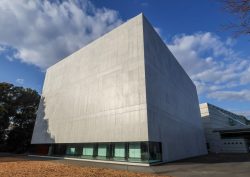
Tokyo University of the Arts Now Offering Free Guided Tour of New Storage Building, Completed in 2024
-

Exhibition Shows Keene’s Interactions with Showa-Era Writers in Tokyo, Features Newspaper Columns, Related Materials
-

Step Back in Time at Historical Estate Renovated into a Commercial Complex in Tokyo
-

The Japan News / Weekly Edition (1/30-2/5)
-
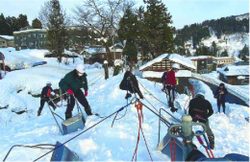
Prevent Accidents When Removing Snow from Roofs; Always Use Proper Gear and Follow Safety Precautions
JN ACCESS RANKING
-

Japan PM Takaichi’s Cabinet Resigns en Masse
-

Japan Institute to Use Domestic Commercial Optical Lattice Clock to Set Japan Standard Time
-

Israeli Ambassador to Japan Speaks about Japan’s Role in the Reconstruction of Gaza
-

Man Infected with Measles Reportedly Dined at Restaurant in Tokyo Station
-

Videos Plagiarized, Reposted with False Subtitles Claiming ‘Ryukyu Belongs to China’; Anti-China False Information Also Posted in Japan






















